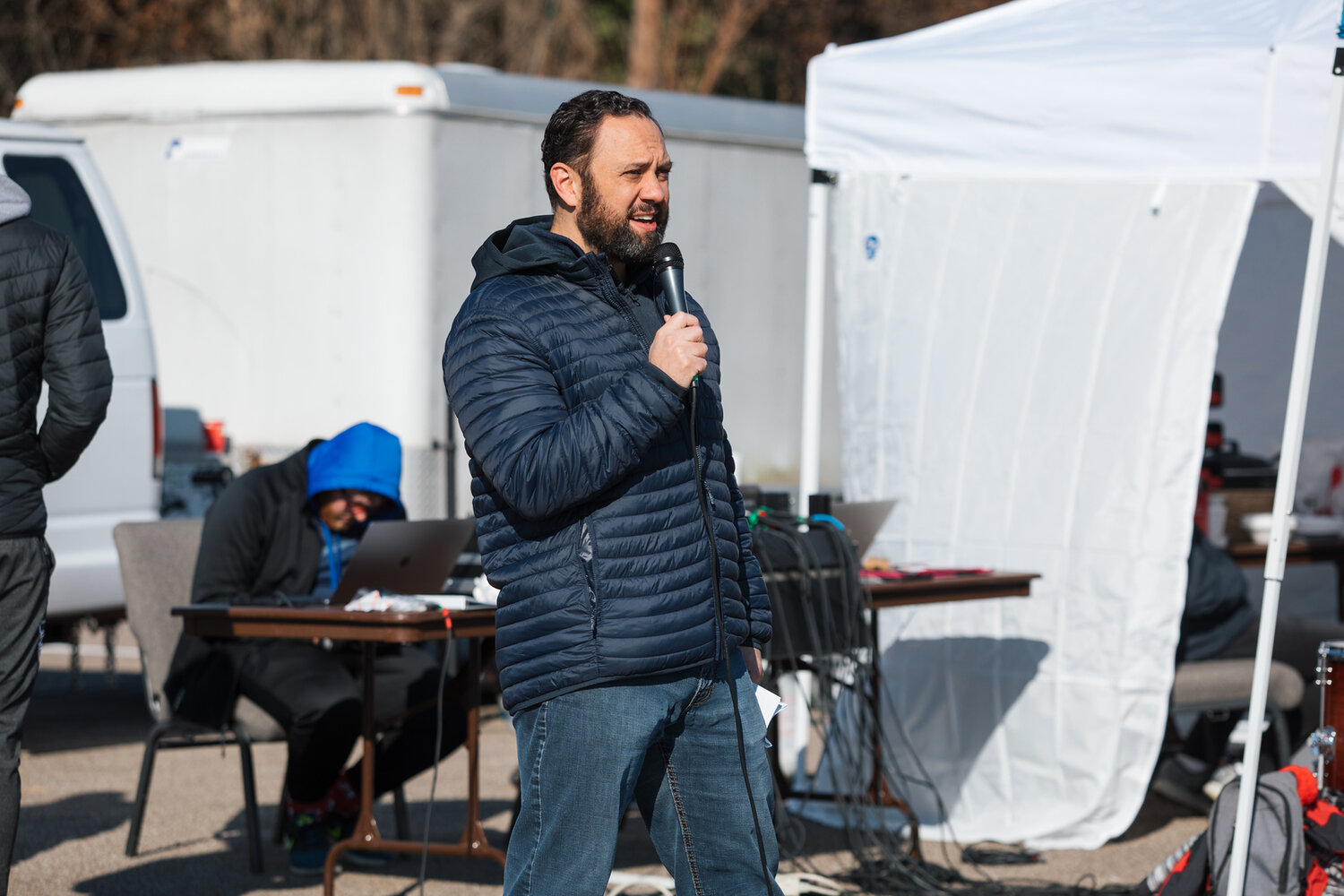Dooley Noted: Using praise as a weapon
In his book, Begin Again, Max Lucado shares the story of Nadin Khoury, who was just a 5’2”, 100-pound immigrant when he and his mother moved to Philadelphia. He never stood a chance when a group of neighborhood kids began to bully him daily. As their taunting escalated, it led to full blown assault on a cold day in January. For 30 straight minutes, the ruthless thugs kicked and beat the 13-year-old boy. Next, they drug his body through the snow and stuffed him into a tree. Finally, they suspended him from a 7-foot iron fence before a passerby chased them away.
The attackers were so arrogant, though, that they filmed the whole episode and posted it on YouTube. Soon, police got involved and the abusers found themselves in jail. Nadin, on the other hand, became a hometown celebrity. When producers of The View learned of the incident, they invited him to be on the show.
Unbeknownst to the boy, three members of the Philadelphia Eagles football team, wide receiver Desean Jackson and two linemen, were there to surprise him. They gave the boy signed jerseys and then, on national television, Jackson handed Nadin his cell phone number and said, “Anytime you need us, I got two linemen right here.” From that day forward, would-be villains thought twice before harassing the kid with NFL linemen on speed dial.
Who wouldn’t want that kind of protection? Incredibly, God offers much the same for every Christian. Psalm 121:7-8 says, “The Lord will protect you from all harm; he will protect your life. The Lord will protect your coming and going both now and forever.” Believers live in light of the glorious promise that God will take care of us by means of something better than cell number. He is only a praise away when we need Him. Nothing invites the manifest presence of God like the praise of His people.
To better understand this principle, we turn to an incident in the life of King Jehoshaphat, a ruler in Judah before the time of Israel’s exile (2 Chron. 20). With pagan enemies surrounding them on every side, the Jews had nowhere to turn but the Lord (2 Chron. 20:1). Not knowing what else to do, Jehoshaphat led his people to begin praising the Lord. Their expressions of devotion are a helpful model of worship for Christ followers who face any number of moral dilemmas with no solutions in sight.
First, we should praise God for who He is (2 Chron. 20:5-6). Jehoshaphat acknowledged Yahweh’s Lordship, authority, power, and sovereignty over all the earth. In other words, he led his people to find peace by focusing on the majesty and greatness of God. Seeing our problems in light of who God is rather than vice-versa, is the first step toward overcoming anxiety.
Second, we should praise God for what He has done (2 Chron. 20:7-9). By recalling all that God did for the forefathers of Judah, Jehoshaphat found strength from the Lord’s previous provisions. Remembering God’s goodness in the past will cast a shadow of peace over the troubles we face in the present. Doing so helps us to cope when we don’t understand what God is, or is not, doing.
Finally, with great faith, we should praise God for what He will do (2 Chron. 20:12). After acknowledging his desperation before the Lord, Jehoshaphat began to boast of Yahweh’s strength and ability to deal with the enemies lurking around Judah. Believing that God was anxious to hear his pleas for help, the king anticipated the same miraculous intervention he experienced so many times before. Such praise is a powerful weapon when we face life’s uncertainties.
In fact, we read that God defeated the enemies of Judah through the unusual battle strategy of worship. Musicians led the charge as the people marched into battle, resulting in an overwhelming victory (2 Chron 20:21-23). Granted, our trials are seldom this severe, but praise remains one of the most powerful weapons Christians have when adversities come. Amy Carmichael famously said, “Satan cannot endure praise and worship, so he slips out of the room, more or less, when there is a true song.”
Yet, tragically, too many Christians worship their work, work at their play, and play at their worship. When trouble comes, what do we often do instead? We get on phone, rally troops, form alliances, and do everything in our power to put out brushfires and defend our ourselves. We fight, fight, fight, instead of letting God fight our battles for us.
So let me encourage you, no matter what you’re dealing with or what might be ahead, keep worshipping the Lord. Praise Him before He intervenes, when He intervenes, and after he intervenes. Are you in the middle of a family crisis? Be sure to praise the Lord. Are you facing problems at work? Don’t forget to worship Jesus. Is your health failing? Make sure you stop long enough to honor your Savior. Are you battling depression? Prioritize the worship of our great God. Don’t ever underestimate the powerful impact praising the Lord will have on your daily life.
Dr. Adam B. Dooley is pastor of Englewood Baptist Church in Jackson, TN, and author of Hope When Life Unravels. Contact him at adooley@ebcjackson.org. Follow him on Twitter @AdamBDooley.






